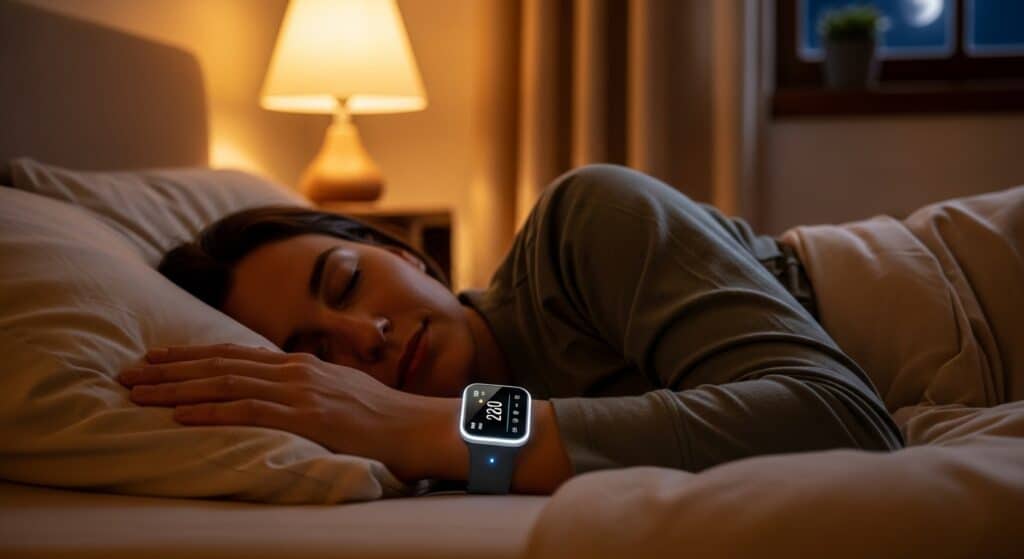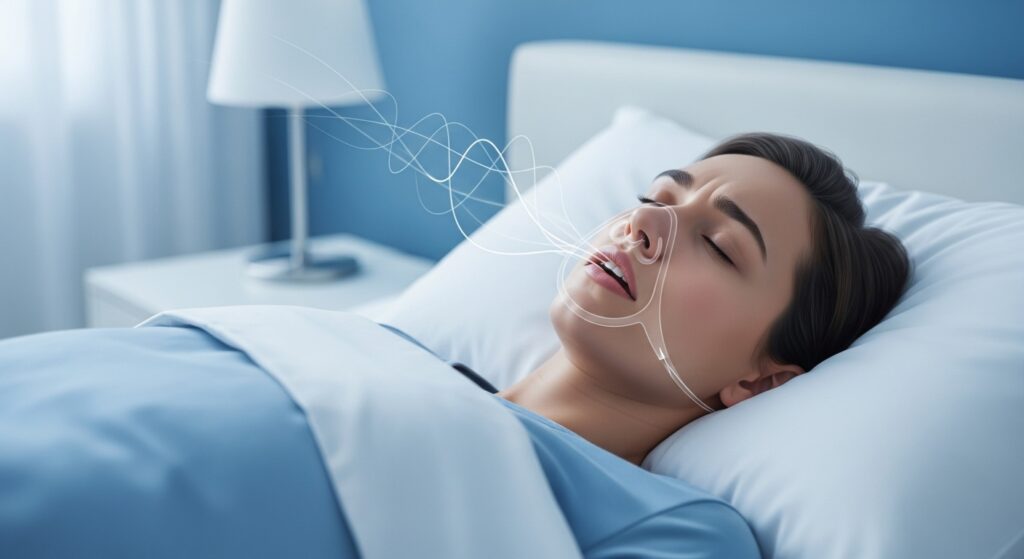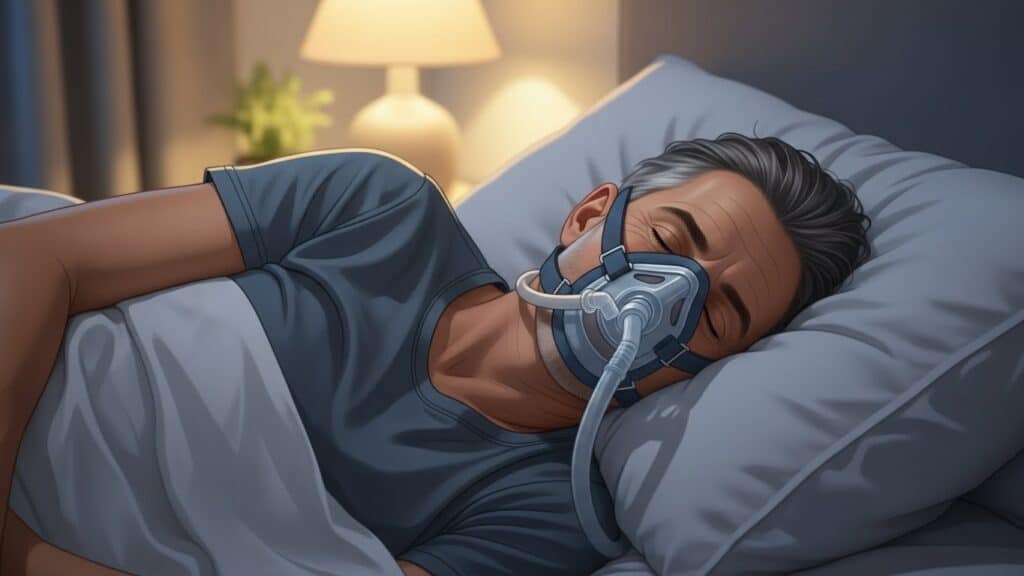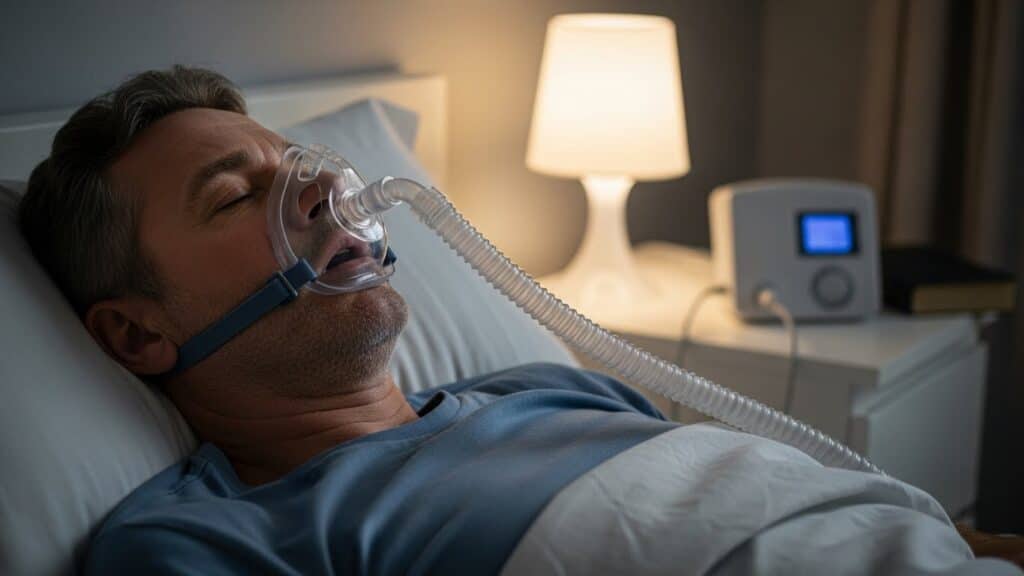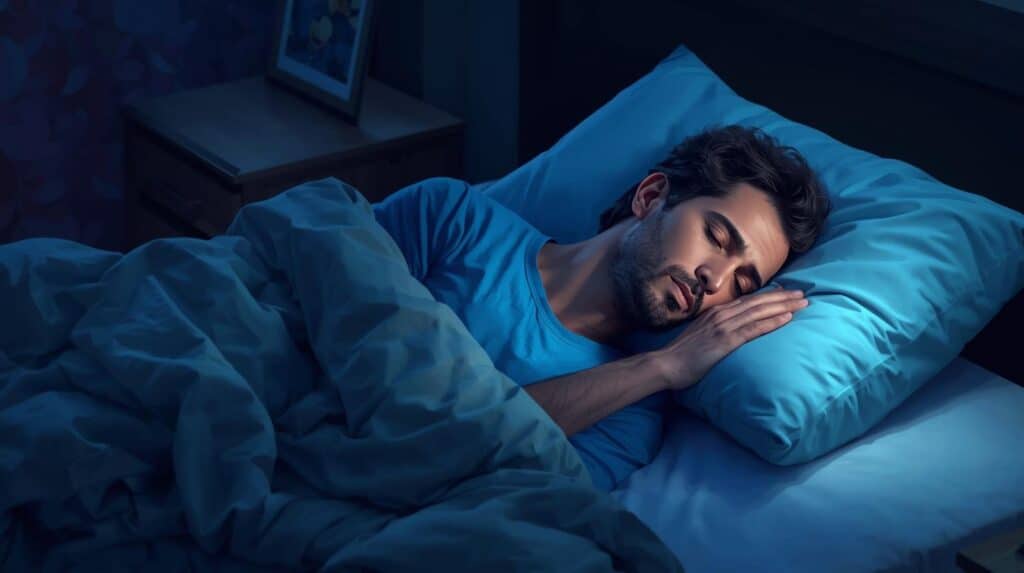If you’ve ever wondered why sleep can feel harder at certain times in life, you’re not alone. Many women struggle with restless nights, early wake-ups, or feeling tired even after a full night in bed. The surprising part? Hormones play a much bigger role in sleep than most people realize.
In fact, about half of postmenopausal women report a sleep disorder, so this issue is both common and important.
From monthly cycles to pregnancy and menopause, hormones change how our brains and bodies rest. These shifts can throw off natural sleep rhythms, making it harder to drift off or stay asleep. Understanding how hormones shape sleep is the first step toward better nights and brighter mornings.
First, let’s look at how sleep works inside the body and what happens when that rhythm gets off balance.
How Sleep Works in Our Bodies
Sleep isn’t only about closing your eyes—it’s a full-body process that keeps your mind and body running well. Every night, your brain and body move through sleep cycles, which include light sleep, deep sleep, and dreaming sleep (also called REM). Each cycle helps repair muscles, balance mood, and clear out stress from the day.
What Controls Sleep
Your body runs on an internal clock called the circadian rhythm. It uses light and hormones to know when it’s time to rest or wake up. Two important hormones control this rhythm:
- Melatonin helps you fall asleep by making you feel drowsy when it’s dark.
- Cortisol wakes you up by raising your alertness in the morning.
But sometimes, things go wrong. For example, cortisol spikes and midnight awakenings can happen when stress or hormone levels rise at the wrong time. Your body thinks it’s morning when it’s not, so you wake up too early or can’t fall back asleep.
How Hormones Help
Women’s hormones—like estrogen and progesterone—also guide how deeply we sleep. These hormones calm the brain and help regulate body temperature. When they change, sleep can feel lighter or broken. This is why hormones and sleep are closely tied together.
When Sleep Disruptions Appear
Stress, late-night screens, or health conditions can interrupt sleep cycles. Some women may also experience sleep apnea in women, where breathing stops and starts during the night. Many don’t know they have it until they notice daytime fatigue or headaches. A home sleep apnea test can help detect it early and guide treatment.
Good sleep isn’t a mystery—it’s a balance of hormones, environment, and routine. When one part changes, the rest often follows.
Why Women Feel Sleep Changes More
Women experience more changes in hormones throughout life than men do. Each stage—puberty, pregnancy, and menopause—brings new hormone patterns that can change how well we sleep. These ups and downs explain why women often report more sleep issues.
Hormone Shifts and Sleep
- Estrogen helps keep body temperature steady and supports deep sleep.
- Progesterone promotes calmness and relaxation.
- When either drops, women may wake up more or sleep lightly.
As hormone levels rise and fall, sleep quality changes too. During menopause, for example, lower estrogen can cause sleep problems during menopause like night sweats, hot flashes, and early awakenings.
Stress Makes It Worse
Life’s pressures—work, family, or emotional load—add another layer. Stress causes cortisol to rise, which can delay sleep or trigger early waking. When this keeps happening, it becomes a cycle that’s hard to break.
Physical Differences Matter Too
Women’s airways and breathing patterns are slightly different from men’s. That’s why conditions like sleep apnea in women often go unnoticed or look different. Instead of loud snoring, women may report fatigue, brain fog, or insomnia symptoms.
The mix of hormones, stress, and physical changes makes women more sensitive to sleep disruption. Recognizing this connection can help identify the real cause, not just the symptoms.
When Sleep Problems Show Up Most
Certain times in life make sleep especially tricky. These are the moments when hormone levels swing the most—and sleep can suffer.
1. During Monthly Cycles
Before a period, both estrogen and progesterone drop. This can lead to bloating, cramps, and restlessness. Some women find it harder to fall asleep or stay asleep around this time.
2. During Pregnancy
Pregnancy brings new challenges—discomfort, frequent bathroom trips, and vivid dreams. Hormone levels surge, and sleep can become lighter. Iron levels may also drop, leading to leg discomfort or twitching.
3. During Menopause
Insomnia and menopause often go hand in hand. Hot flashes and night sweats make it tough to get continuous rest. Some women also develop postmenopausal sleep problems, including trouble breathing during sleep. Using a home sleep apnea test can help diagnose issues early and find the best sleep apnea treatment for relief.
4. After Menopause
Even after hot flashes fade, hormonal changes continue. Lower estrogen can dry out airways and make sleep apnea in women more common. This can lead to morning headaches, fatigue, or mood swings.
Sleep challenges at these times are normal, but they don’t have to control your life. Talking to a doctor or sleep specialist can open the door to better rest and more energy each day.
How Hormones Affect Women’s Sleep (and What You Can Do)
Hormones are powerful messengers that travel through the body every day. They control how we feel, think, and sleep. When these chemical messengers shift up or down, the body can feel out of balance—and sleep often suffers first.
Women experience many hormone changes throughout life. These changes happen naturally during the menstrual cycle, pregnancy, and menopause. Each phase affects how the body rests and restores itself.
Here’s how this works, what can go wrong, and what you can do to feel rested again.
1. How Hormones Shape the Sleep Cycle
Your sleep follows a daily rhythm, guided by the brain and supported by hormones. These hormones tell your body when to wind down and when to wake up.
- Melatonin helps you fall asleep by signaling that it’s dark and time to rest.
- Cortisol does the opposite—it rises in the morning to help you feel alert and focused.
- Estrogen and progesterone, the main female hormones, affect body temperature, mood, and muscle relaxation—all key parts of good sleep.
When these hormones rise and fall sharply, they can confuse the brain’s sleep system. You might fall asleep easily but wake up too early or toss and turn at night. These shifts are common at certain life stages for women.
2. Hormonal Phases That Affect Sleep
Each stage of a woman’s life brings unique hormone patterns. These patterns influence how deeply and how long you sleep.
Menstrual Cycle
During the second half of the cycle, progesterone rises and then drops before a period starts. That change can lead to lighter sleep, mood swings, or bloating—all of which make rest harder. Some women notice headaches or vivid dreams right before their period. These symptoms often fade once hormones stabilize again.
Pregnancy
Pregnancy increases progesterone, which can make you sleepy during the day but restless at night. Frequent trips to the bathroom, back pain, and baby movement can interrupt deep sleep. The body also produces more estrogen, which affects breathing. This makes sleep apnea in women more likely during pregnancy, even if it was never a problem before.
Menopause and Beyond
Menopause brings the biggest hormone changes of all. Estrogen levels drop, and progesterone levels fall, too. These shifts can trigger sleep problems during menopause such as hot flashes, night sweats, and mood changes. Some women also face insomnia and menopause—difficulty falling or staying asleep for weeks or months.
After menopause, sleep issues can linger. Lower estrogen affects breathing muscles and the nervous system, leading to postmenopausal sleep problems like snoring or pauses in breathing. These can sometimes be linked to sleep apnea blood pressure surges, which raise the risk of heart strain if untreated.
3. The Science of Hormones and Sleep Quality
Hormones and sleep work together like a rhythm. When hormones are balanced, your sleep cycles run smoothly. When they aren’t, everything feels off.
Here’s how each key hormone affects rest:
- Estrogen keeps your body temperature steady and helps regulate REM sleep (the dreaming stage). Lower estrogen can cause you to wake up sweaty or too warm.
- Progesterone has a calming effect on the brain. When levels drop, you might feel anxious or restless at night.
- Cortisol is a stress hormone that peaks in the morning. But when stress builds up, cortisol spikes and midnight awakenings can happen. You may wake up suddenly and struggle to drift back to sleep.
- Melatonin tells your body when it’s bedtime. Screens, bright lights, or late-night meals can interfere with melatonin release, making it harder to fall asleep.
Balancing these hormones can take time and patience, but small daily choices can make a big difference.
4. What You Can Do to Support Better Sleep
You can’t stop hormone changes, but you can manage how your body responds to them. These tips focus on restoring balance, reducing triggers, and improving overall rest.
Keep a Sleep Routine
Go to bed and wake up at the same time every day—even on weekends. A steady routine helps your body’s internal clock stay in sync with natural hormone cycles.
Create a Calm Sleep Environment
- Keep your room cool, dark, and quiet.
- Avoid heavy meals and bright screens an hour before bedtime.
- Try light stretching or slow breathing to relax your muscles and mind.
Manage Stress
Stress raises cortisol, which can ruin a good night’s rest. Try gentle activities that calm your mind, such as yoga, journaling, or walking. Over time, these habits help reduce night awakenings.
Exercise Regularly
Moderate exercise during the day can improve deep sleep at night. It also helps regulate estrogen and progesterone levels. Just avoid vigorous workouts close to bedtime.
Watch What You Eat and Drink
Caffeine, sugar, and alcohol can disturb hormones and increase night waking. Drink water during the day but limit fluids right before bed to avoid bathroom trips.
5. When to See a Doctor
If lifestyle changes don’t help, or if you feel tired even after long nights of rest, talk to your doctor. You might have an underlying sleep condition like sleep apnea.
Many women don’t realize they have it because symptoms look different than in men. Instead of loud snoring, women may have morning headaches, brain fog, or mood changes. A home sleep apnea test can check for breathing problems during sleep without needing to spend a night in a lab.
If diagnosed, your doctor can guide you to the best sleep apnea treatment based on your needs. This may include using a CPAP machine, wearing a dental device, or making simple lifestyle adjustments. The right treatment can reduce fatigue, improve focus, and protect your heart health.
6. Managing Menopause-Related Sleep Problems
During menopause, hormone changes can make nights especially challenging. Here are a few ways to manage symptoms:
- Cool the room: Keep a fan or open window nearby to reduce hot flashes.
- Dress light: Wear breathable fabrics to stay comfortable through the night.
- Try relaxation before bed: Listening to calm music or doing gentle breathing can help the body settle down.
- Talk to your doctor: Hormone therapy, when appropriate, can sometimes improve severe night sweats and sleep disruptions.
Some women also explore natural approaches like magnesium, herbal teas, or guided relaxation. Always discuss these options with your doctor to find what’s safe and effective for you.
7. Why Treating Sleep Disorders Matters
Poor sleep affects more than your energy—it can impact your memory, heart, and mood. Over time, untreated sleep apnea can lead to sleep apnea blood pressure surges, which strain your heart and raise long-term health risks. Lack of rest also increases stress, which can cause more hormonal imbalance, creating a cycle that’s hard to break.
By understanding how hormones affect sleep, you can make smarter choices for your health. Even small steps—like keeping a steady bedtime or getting a sleep test—can make a big difference.
8. Building a Healthier Sleep Routine
Here’s a quick recap of daily habits that help balance hormones and improve rest:
- Stick to regular sleep and wake times.
- Keep your bedroom cool and comfortable.
- Limit caffeine after lunchtime.
- Turn off electronics an hour before bed.
- Stay active during the day.
- Talk to your doctor about ongoing sleep issues.
Better sleep doesn’t happen overnight, but progress builds with consistency. When you respect your body’s signals and understand your hormones, restful sleep becomes easier to achieve.
Conclusion
Hormones influence almost every part of a woman’s sleep—when you fall asleep, how long you stay asleep, and how refreshed you feel in the morning. From puberty to menopause, these natural changes can shape your nights in powerful ways.
Understanding this link helps you take steps that truly work, from calming routines to hormone discussions with your doctor. While these changes are normal, they can cause real challenges if ignored.
The good news is that you have tools to take control. With simple habits, testing when needed, and medical support, you can restore balance and protect your long-term health. Sleep is one of the best gifts you can give yourself—and understanding your hormones helps you get it.
Better sleep starts with awareness—and a willingness to look deeper. If you’re struggling with nighttime awakenings or fatigue, talk to your healthcare provider about Sleep Apnea and explore options for testing and care. You deserve restful nights that help you feel your best every day.
Frequently Asked Questions
1. How can I tell if I have sleep apnea?
Common signs include snoring, gasping, morning headaches, and daytime tiredness. A doctor may recommend a home sleep apnea test.
2. Can menopause cause poor sleep?
Yes, hormone changes during menopause often cause hot flashes and insomnia, making restful sleep harder to achieve.
3. Do hormones really control sleep?
Yes. Hormones like estrogen, progesterone, melatonin, and cortisol help control sleep timing and quality.
4. How can I manage stress to sleep better?
Try deep breathing, light stretching, or keeping a regular bedtime. Reducing evening stress helps lower nighttime cortisol.
5. Is sleep apnea treatable?
Yes. The best sleep apnea treatment may include CPAP therapy, oral appliances, or lifestyle changes based on your doctor’s advice.

